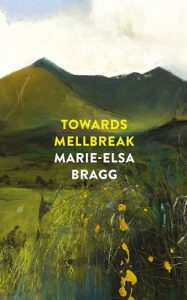 Published by Chatto & Windus 6 April 2017
Published by Chatto & Windus 6 April 2017
224pp, hardback, £12.99
Reviewed by Alison Burns
The poisoning of British hill-farmers in the late twentieth century may have been less deliberate than the poisoning by nerve gas of young soldiers on the battlefields of the First World War but the means were identical: neurologically destructive organophosphates, used for sheep-dipping. In Marie-Elsa Bragg’s quietly devastating first novel, the link is made indelible. You have only to look at the family tree to see the cutting down of the earlier generation; one of Bragg’s themes is the pointless suffering of those who followed.
Her story opens on the North Western fells of Cumbria, in the spring of 1971. Harold and his uncle Joe run the family farm at Ard, with domestic support from Harold’s grandmother, Catherine. Rooted in their landscape, these three face the painful loss of traditional ways of farming. Rules and registers, supervised by officials from the Ministry, disturb old patterns of life on the fells. Everything is contested: how the land is drained and divided, how the cows are milked, how the sheep are dipped…
Meanwhile, Harold’s knowledge of his land and flocks; his family’s loyalty to the dear departed; their acceptance of hardship; their attention both to the passage of the seasons and to the yearly rituals of the church – all these continue on familiar tracks, accommodating bereavement, courtship, childbirth and the whole of family life as naturally as day follows day.
Then illness strikes Harold, seemingly out of the blue. He is afflicted by fever, chills, the shakes, a blistering rash. He begins to lose the use of one eye. In his weakness, he feels that he has failed his father. Joe, too has become bitterly depressed. It is left for young Stephen, Harold’s son, and his thoughtful mother Esther, to look to the future.
Towards Mellbreak is suffused with love for these people and their place. You see and feel the rain ‘lathered onto the fells, clinging to the clouds like froth’, the snowdrops ‘spread across the lawn, as if a stream had come through’, the mourners crammed into the farm kitchen ‘like a bucket of coals’. It is such an intimate portrait that you don’t want to leave them. However, it is also the story of an avoidable tragedy.
Organophosphate pesticides (OPs) were in use from the 1950s, but not labelled as ‘deadly poison’ until the 1990s, from which point farmers were required to wear protective clothing. In 2002, the World Health Organization identified OPs as ‘the most common cause of severe acute pesticide poisonings, some of which have resulted in deaths’.
